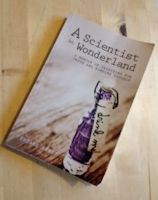There is a bunch of homeopathic organisations in the UK. Unfortunately, one of them has the same initials as the British Humanist Association, an organisation I am proud to have been part of in various ways for some 20 years. Although I had no part in writing any text on the organisation’s website about homeopathy, I’m happy to defend its stance, which happens to coincide with my own. It is a stance entirely in keeping with a humanist world view, which judges each situation on its merits according to standards of reason and humanity.
The British Homeopathic Association is a charity whose overall priority is to “ensure that homeopathy is available to all”. It doesn’t appear to be a membership organisation but it seems anyone can become a ‘friend’ of theirs for an annual donation of £25.
Patrons are just royals and assorted celebrities. Idiots, obviously.
It seems the British Homeopathic Association takes strong exception to a short piece on the British Humanist Association’s website. Here’s a snippet:
British Humanist Association Director of Public Affairs and Campaigns Pavan Dhaliwal said, ‘The fact that some NHS trusts continue to spend money on treatments known to be ineffective at a time when the health service is facing tremendous financial pressure is astonishing. Not only is this wasteful, but it could even put public health at risk. Public money could be better spent providing treatments that have been proven to work.’
A few days ago, Margaret Wyllie, Chair of the British Homeopathic Association, published the piece below on their website. It is so awful, I am happy to do them the kindness of bringing it to a wider audience.



